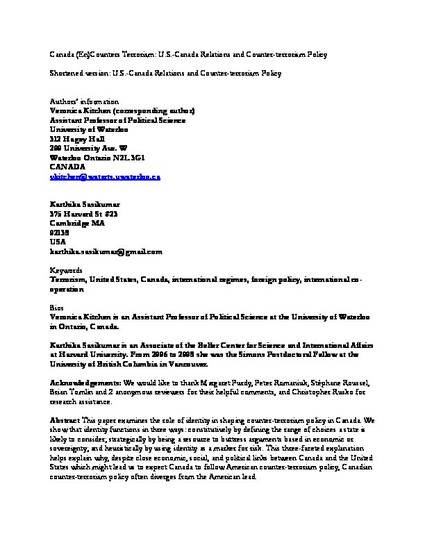
Article
Canada (En)Counters Terrorism: US-Canada Relations and Counter-Terrorism Policy
Terrorism and Political Violence
(2009)
Abstract
This paper examines the role of identity in shaping counter-terrorism policy in Canada. We show that identity functions in three ways: constitutively by defining the range of choices a state is likely to consider; strategically by being a resource to buttress arguments based in economic or sovereignty interests; and heuristically by using identity as a marker for risk. This three-faceted explanation helps explain why, despite close economic, social, and political links between Canada and the United States which might lead us to expect Canada to follow American counter-terrorism policy, Canadian counter-terrorism policy often diverges from the American lead.
Keywords
- Terrorism,
- United States,
- Canada,
- international regimes,
- foreign policy,
- international co-operation
Disciplines
Publication Date
2009
DOI
10.1080/09546550802587572
Publisher Statement
This is an Accepted Manuscript of an article published by Taylor & Francis in Terrorism and Political Violence on January 15, 2009, available online: http://www.tandfonline.com/10.1080/09546550802587572.
SJSU users: use the following link to login and access the article via SJSU databases
Citation Information
Veronica Kitchen and Karthika Sasikumar. "Canada (En)Counters Terrorism: US-Canada Relations and Counter-Terrorism Policy" Terrorism and Political Violence Vol. 21 Iss. 1 (2009) p. 155 - 173 ISSN: 1556-1836 Available at: http://works.bepress.com/karthika_sasikumar/5/
